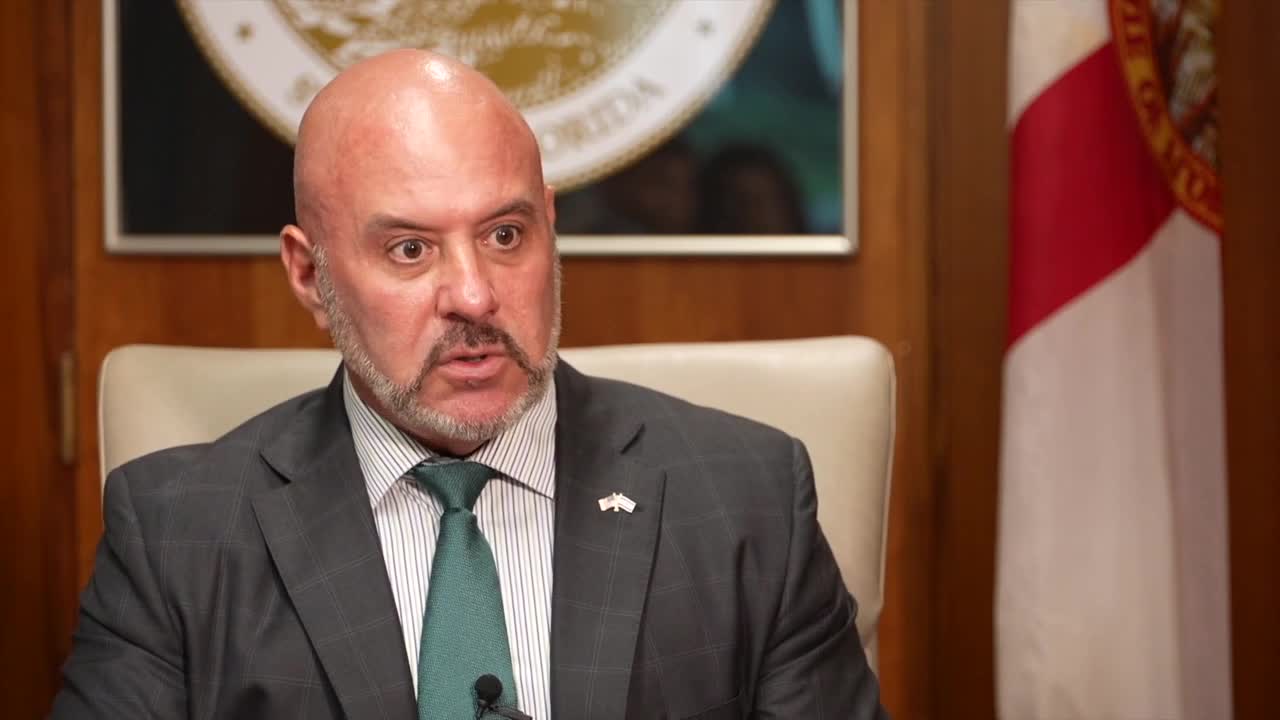TALLAHASSEE, Fla. — Florida Governor Ron DeSantis (R) announced on Tuesday that in-person audits of local governments are officially underway, starting with Broward County and Gainesville, as part of a new state push to uncover what officials call "wasteful spending."
WATCH: Mandatory state audits head to Broward, Gainesville, critics cry political theater
“This is no longer optional,” said DeSantis during a visit to Broward County. “We have the authority. We don't have to ask 'Mother, may I,' we can just simply say you must comply under the law.”
The effort is part of newly enacted rules under Florida's Department of Government Efficiency (DOGE), aimed at increasing transparency in how local governments use taxpayer dollars. The state is requesting seven pages of data from targeted municipalities, encompassing information on compensation, contracts, spending on climate programs, and DEI initiatives.
Cities that fail to comply could face financial penalties.
“So we look at where local budgets were right after COVID to where they are right now. Their budgets have exploded,” said Blaise Ingoglia (R), Florida’s recently appointed Chief Financial Officer and a key figure behind the audits.
Ingoglia emphasized that while the state can’t force local changes directly, the findings could drive public support for new fiscal policies or politicians.
“I don't think we'll have any authority to necessarily roll it back,” Ingoglia said. “But we will have the authority to get some property tax cuts on the ballot next year so [voters] can vote on a constitutional amendment. But the first thing that people need to know is that their local governments, if they are not spending their tax money wisely, have the ability to make change locally.”
Reactions Mixed Across Florida
More than 75 cities and counties have volunteered for self-audits, according to state officials. It was something the city of St. Petersburg seemed eager to do when the idea of municipal DOGE audits was first pitched in March.
“We're good with that,” said St. Petersburg Mayor Ken Welch that month. “Local governments have to balance the budget every year. That’s not an option for us… It’s interesting when I see other governments bragging about balanced budgets. Well, that's what we do every day of the week.”
But not everyone is convinced the move is about fiscal responsibility. Critics—especially from left-leaning municipalities—see a political agenda behind the audits.
“I think it's pure political theater,” said Connor Effrain, President of the University of Florida College Democrats. “If your goal really is fiscal responsibility, you'd focus on [Republican-led] areas, not Broward or Gainesville… It’s pretty clear DeSantis is targeting [us] because we don’t share the same political affiliation.”
Gainesville officials say the city has already taken meaningful steps to cut costs. In a statement, the mayor said local leaders had recently passed a debt reduction plan, cut more than 160 staff, and had increased its credit rating.
“Gainesville has already gone through an extensive DOGE-style process initiated by the Florida Legislature,” said Mayor Harvey Ward. “I expect other historically ‘Blue’ cities and counties will undergo similar scrutiny.”
Broward County, meanwhile, said it is still reviewing the audit notice.
More Audits Coming
Governor DeSantis said Tuesday’s announcement marks just the beginning. Ten to fifteen additional cities and counties are expected to face similar in-person audits, with Palm Beach and Miami-Dade reportedly among those next on the list.
As the audits unfold, the debate over whether this is a genuine push for accountability or political maneuvering continues to divide Florida’s leaders and residents.

'I don’t like gotchas!' Florida drivers confused by school speed zone camera law, but they aren't alone
As more Florida cities and counties add cameras to catch drivers speeding through school speed zones, confusion is also rolling in from drivers who say school zone signs aren’t clear.





